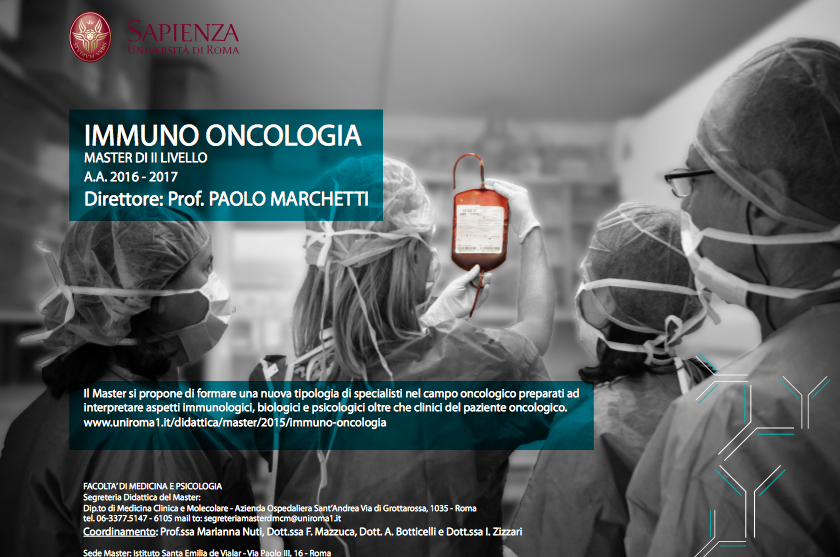Section outline
-

-
-
Adrian Anthony "A. A." Gill was a British writer and critic. Best known for food and travel writing, he was The Sunday Times' restaurant reviewer as well as a television critic.
Born: Adrian Anthony Gill, June 28, 1954, Edinburgh, Scotland
Died: December 10, 2016, London, England
Occupation: Columnist, author for The Times of London
Istruzioni per la discussione ONLINE
1. Aprite il LINK e leggete articolo sul caso di un famosa giornalista Brittanica che scrive il suo ultimo 'pezzo' sul 'Times' di Londra prima di morire di cancro.Nel articolo lui parla del rifiuto da parte del sistema sanitario nazionale (NHS) di dare un trattamento oncologico.
2. Scrivete la domanda clinica alla quale la vostra ricerca spera di trovare una risposta
3. Elencate le parole chiavi utili per la vostra ricerca
4. Provate diverse combinazioni di parole chiavi su MEDLINE e confrontate le vostre risposte sul Chat
-
Nei vostri piccoli gruppi discutete nel chat le domande sollevate dal caso di Mr Gill, e poi le domande specifiche alla quale una ricerca di evidenza dovrebbe dare una risposta. Infine, condividete varie strategie di ricerca - combinazioni di parole chiavi, database scelte etc - utili per la ricerca e gli abstract più interessanti per il caso.
-
Una volta costruire la bibliografia per un articolo era un lavoro che richiedeva tempo e dedizione. Oggi ci sono software che rendono questo lavoro estremamente semplice producendo al tempo stesso citazioni e bibliografie più corrette. Questi software fanno sotto il nome di Reference Manager. I più popolari sono EndNote, Papers, Zotero e l'ultimo arrivato, Mendeley.
Mendeley ha un approccio leggermente diverso rispetto ai predecessori. Oltre ad essere un Reference Manager è infatti anche un social network per ricercatori. Tutte queste applicazioni si basano su una semplice idea. Ogni volta che leggiamo una pubblicazione che ci interessa ne facciamo una sorta di scheda bibliografica da archiviare in un database. Questo database in Mendeley è costituito dall'applicazione Mendeley Desktop (disponibile per Windows, Mac OS X e Linux).
-
Communication in Medicine: Here you will find some resources for our workshop discussions. These include a questionnaire about your challenges in communication in oncology and 3 short readings.

-
Here is short questionnaire to explore what challenges you have with communicating with patients. Please complete it for Saturday so that we can examine the results from the group.
-
PRE-READINGS for Saturday 17th Communication workshop
Small group discussion on Saturday
Here are four papers (Egener 2004; Long 2010; Kisane 2012;Salmon 2013; with different perspectives on communication skills in Oncology. Try to read 1 or 2 in preparation for Saturday's workshop discussion.
Here are some questions to consider:
1. What is the purpose of the paper?
2. What is the design of the paper?
3.What is already known on this topic and what does this paper add to current knowledge?
4. To what extent do you share the authors' conclusions?
For further reading - if you are interested, I have attached a 2016 Cochrane review on the impact on teaching communication skills.
.
-
-
-
The validity of education and guidance fro clinical communication in cancer care: evidence-based practice will depend on practice-based evidence
-
Direct communication, the unquestionable ideal? Oncologists' accounts of communication of bleak prognosis.
-
Cochrane Review on the impact of Communication Skills Training: (2016)
Communication skills training for healthcare professionals working with people who have cancer (Review) ii
Copyright © 2016 The Cochrane Collaboration
P L A I N L A N G U A G E S U M M A R Y
Are courses aimed at improving the way doctors and nurses communicate with patients with cancer helpful?
Peoplewith cancer, and thosewho care for them, often suffer frompsychological stresswhichmay be reduced by effective communication
and support from their attending doctor, nurse or other healthcare professional (HCP). Research suggests communication skills do
not reliably improve with experience, therefore, considerable effort is dedicated to courses to improve communication skills for HCPs
involved in cancer care. Many different types of communication skills training (CST) courses have been proposed and are in practice.
We conducted this review to determine whether CST works and which types of CST, if any, are the most effective.
We found 15 studies to include in this review. All of these studies except one were conducted in nurses and doctors. To measure the
impact of CST, some studies used encounters with real patients and some used role-players (simulated patients). We found that CST
significantly improved some of the communication skills used by healthcare workers, including using ’open questions’ in the interview
to gather information and showing empathy as a way of supporting their patients. Other communication skills evaluated showed no
significant differences between the HCPs who received the training and those who did not. We did not find evidence to suggest any
benefits of CST to patients’ mental and physical health, patient satisfaction levels or quality of life, however, few studies addressed these
outcomes. Furthermore, it is not clear whether the improvement in HCP communication skills is sustained over time and which types
of CST are best.
Communication
-


